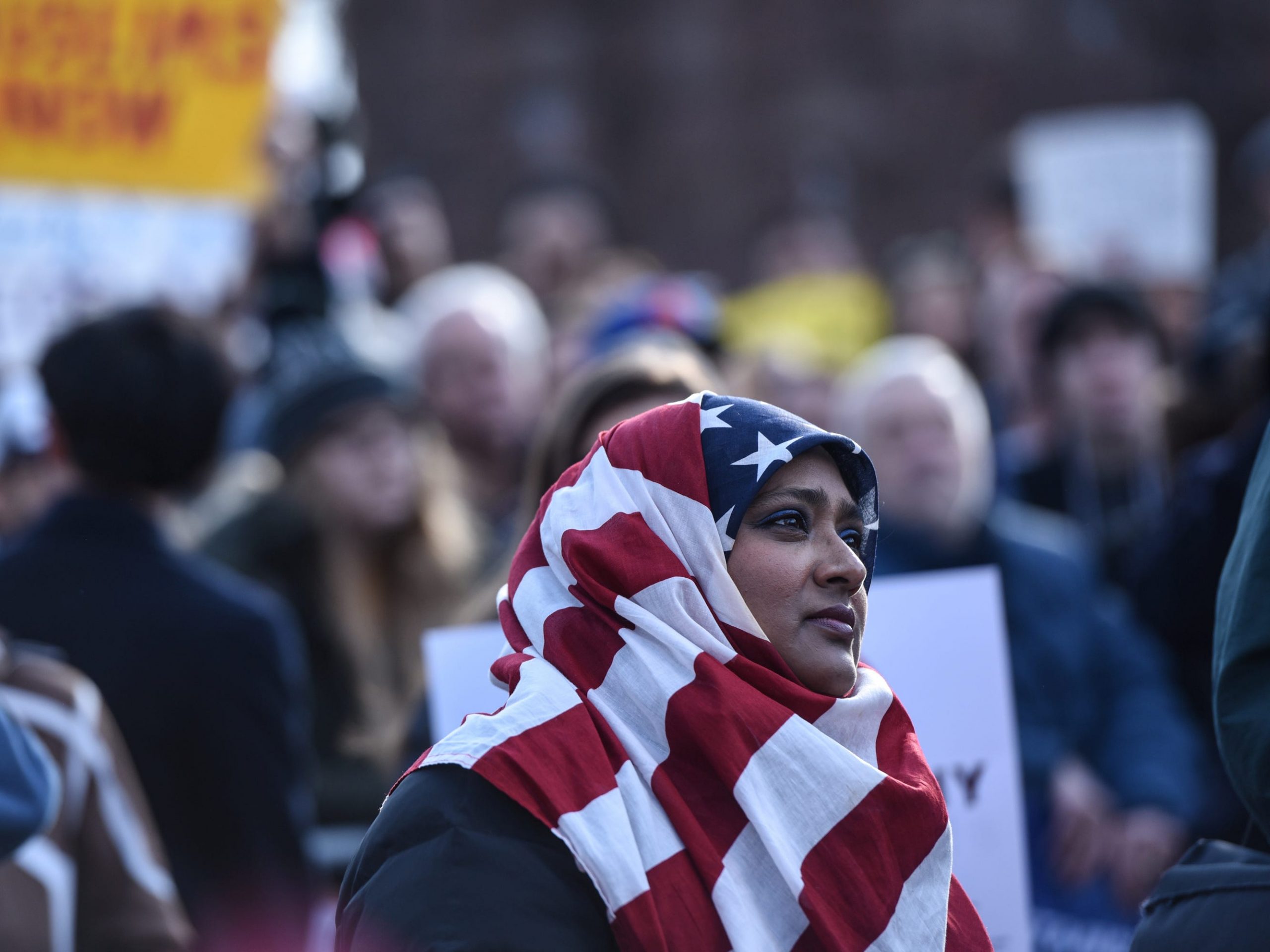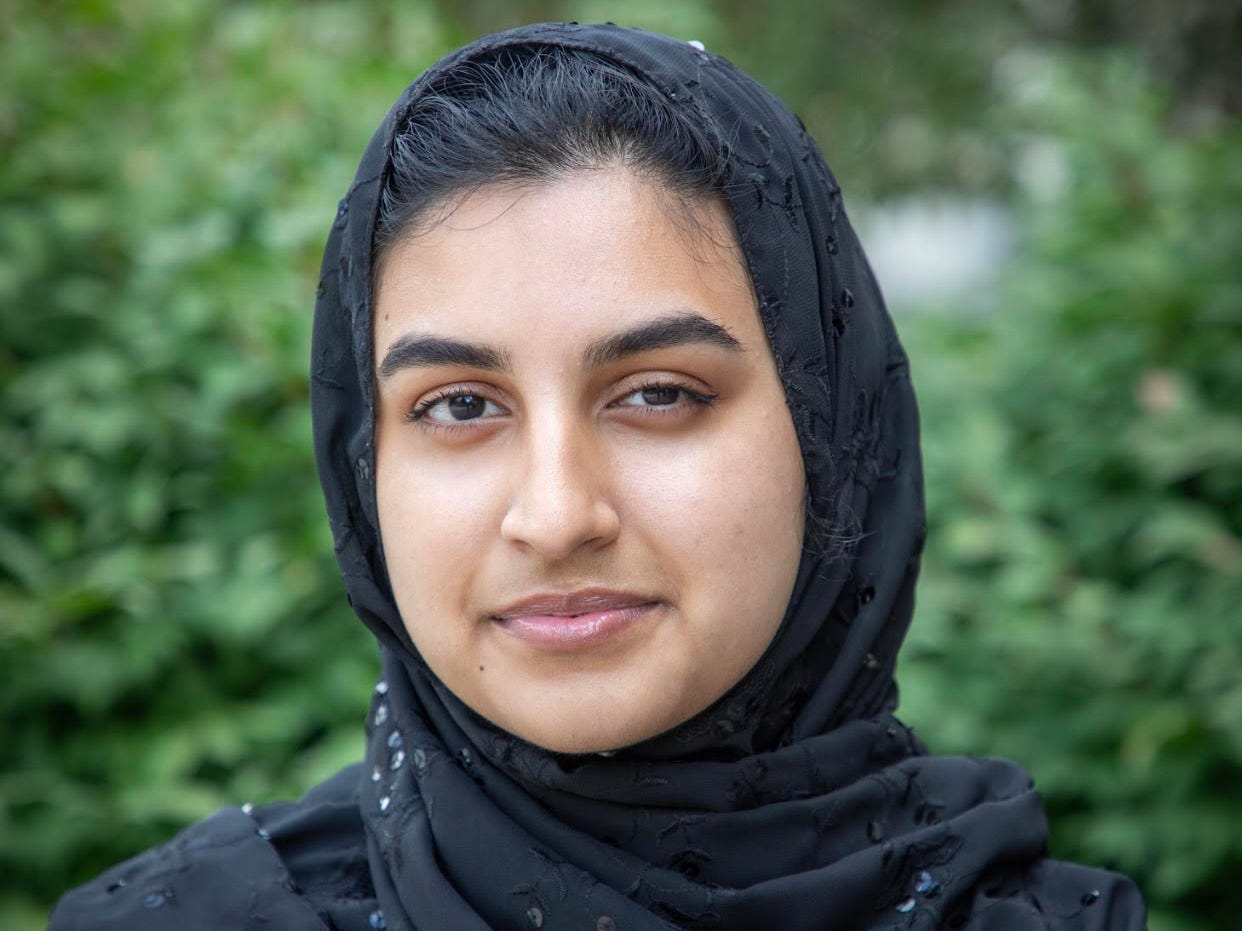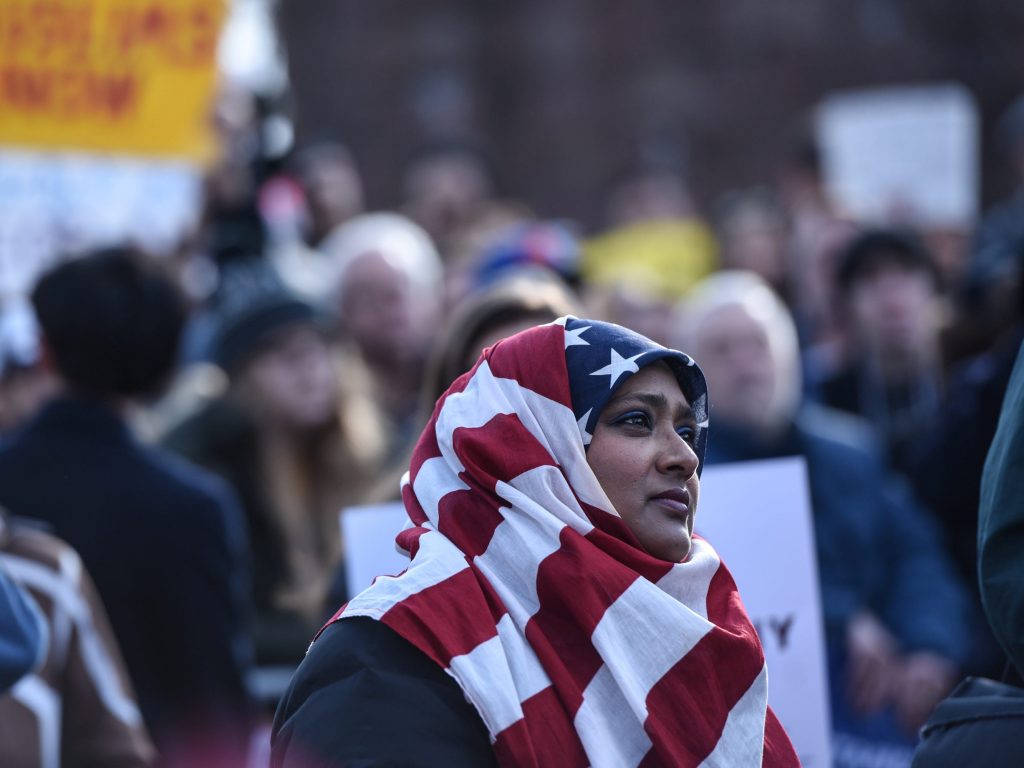
REUTERS/Stephanie Keith
- The 20th anniversary of 9/11 was a reflection on how the tragedy shaped Muslim Americans' lives.
- Muslims reported dealing with increased bullying, harassment, intimidation tactics, and hate crimes.
- Galvanized by 9/11, they have joined together to advocate for political and institutional changes.
- Visit Insider's homepage for more stories.
Elham Malik's younger brother used to be fascinated with airplanes. In fact, he wanted to be a pilot when he grew up.
That dream swiftly changed, however, after a bus driver reprimanded him for drawing doodles of planes in a notebook on his way home from school.
"The bus driver went up to my mother and told her that it was 'completely unacceptable' for my brother to be drawing planes," Malik, a senior at Sienna College, told Insider.
"My mom set us down for a conversation and said, 'I respect your passion, but we can't talk about or be interested in planes. It's dangerous because we're Muslim,'" she continued.
That was the first time Malik learned about what happened on September 11, 2001. She hadn't yet been born when the extremist Islamist terrorist group al-Queda hijacked four flights and killed thousands of people in what remains the deadliest terrorist attack to date.
Saturday, which marked the 20th anniversary of 9/11, was both a day of mourning for the lives lost in the attacks and a reflection on the innumerable ways the tragedy shaped the lives of Muslim Americans.
The school-bus incident was the first time the 17-year-old understood that practicing Islam - a religion she says "has nothing to do with the few who committed the attacks" - could put a target on her back.
Malik is part of a generation of Muslim-Americans who grew up in 9/11's shadow.
Despite either not yet being alive that day or being only a few years old during the attacks, the torrent of Islamophobia that was unleashed on Muslims in the tragedy's aftermath has forever changed them.
Two decades later, this group and many others are still trying to reclaim their religion amid the widespread verbal abuse and violence that their communities face.
Verbal harassment, comments about terrorist ties abound
According to a report from the Council on American-Islamic Relations (CAIR), the largest Muslim civil rights organization in the US, 72% of Muslim women and 67% of Muslim men reported experiencing at least one or more incidents of anti-Muslim bigotry since 9/11.
Nearly 35% of the survey's respondents said that anti-Muslim rhetoric in the intervening years has impacted their mental health.
Malik, who said it's been "damaging" to repeatedly "explain" that she and her community were "not responsible" for the attacks, is a testament to the tangible mental health affects 9/11 has had.
"Xenophobia and Islamophobia always existed, but they were nowhere near the levels that were unleashed after 9/11," Omer Bajwar, the director of Muslim Life at Yale University, said.
"My students have grown up in a world where Islamophobia is open political discourse and media punditry. It's a different world for them," he added.
-Kat Abu (@abughazalehkat) September 11, 2021
Khalid Dada, a senior at Ohio State University, recalls sitting in a high school class when a friend of his said that Osama bin Laden was Dada's third uncle.
It was a "joke" Dada had gotten used to hearing over the years and one that usually just let roll off his back.
But this time, Dada's teacher asked him in front of the class whether it was true - a question that Dada felt empowered his classmates to continue making the hurtful comment.
"It made me afraid that these people really thought Osama bin Laden is representative of our religion," Dada told Insider. "I couldn't let people think it was okay."
Kumail Afshar, a freshman at Pomona College, has had similar experiences. He said he's "been called Osama bin Laden more times than I can count."
He noted that the verbal harassment from classmates only increased with attacks that followed - including the 2016 Pulse nightclub shooting carried out by an Afghan American, and the attack on the Shayrat Airbase in Syria a year later.
"I remember after the strike in Syria, this guy came up to me and said, 'look how we bombed you, you goat f------ in Syria. We destroyed you,'" Afshar recalled.
Hate crimes and intimidation have long-standing effects

Courtesy of Elham Malik
As with hate crimes against many minoritized groups, hate crimes against Muslims have likely been undercounted, according to Muslim Advocates, a civil rights group that provides legal and other resources to Muslims.
Per the organization, "law enforcement agencies … do not have to report hate crimes to the government and many hate crime victims never make a report in the first place."
Yet data nonetheless shows that hate crimes against members of the religious group have soared in the aftermath of 9/11.
While hate crimes against Muslims fell by 42% in 2020, per FBI data, the number of assaults targeting US Muslims surpassed the post-9/11-peak between 2015 and 2016 with 127 reported aggravated or simple assaults, according to the Pew Research Center.
Physical hate crimes are not the only ways Muslims have been targeted, however.
Per the Pew Research Center, Muslims deal with intimidation, or "reasonable fear of bodily harm."
Surveillance programs, like that enacted by the New York Police Department, has also caused fear in Muslim communities, according to the ACLU.
For Muslim women who wear hijabs, outwardly displaying their faith has brought unsolicited attention and abuse.
Maya Mattan, Dada's classmate at Ohio State University, said "the second you start wearing the headscarf, you're going to get a look no matter what, even if you're just doing the smallest of things, like driving."
She recalled when a man honked his horn at her while she was driving, one of the many "everyday microbiases" she has experienced.
"The thing about being Muslim is you feel like you have to reverse every stereotype," Mattan said. "But I love my culture and religion. I'm a Syrian woman and I am not embarrassed or ashamed of that in any way."
Malik, the senior at Sienna, said determining when to wear the hijab has been a source of contention between her and her mother.
Her mother would prefer for Malik to take off her hijab in airports if she is asked by TSA Agents to avoid a potentially hostile situation.
But Malik isn't really comfortable with taking it off.
"I don't blame my mom because her fear is very real," Malik told Insider. "But I know what Islam is and I'm not afraid to be Muslim. I know what my religion is and what it's not."
9/11 ignited activism and internalized Islamophobia
Islamophobia has grown in the years since September 11, 2001, according to Bajwar, because society often needs "an external bougie man.
"We need an external force to blame for the world's chaos," he said.
Sometimes the rampant Islamophobia can cause Muslims to internalize prejudice - an issue Bajwar has observed on-campus among some of his students.
A Jama Psychiatry study published in July found that nearly eight percent of Muslim respondents said they had attempted suicide during their lifetime, compared with 6 percent of Catholics, 5 percent of Protestants and 3.6 percent of Jews, a discrepancy the study attributed partly to discrimination.
"After 5, 10, 15, 20 years of consuming hatred and animosity against their culture and faith, they intenalize all this subconsciously and start questioning, 'is islam really as bad as they say it is," Bajwar questioned.
"Why are my people so bad? Do I want to stay Muslim,'" he continued.
But far more often he's seen young Muslims embrace their faith in the face of hate.
"Many young Muslims are mobilizing against these oppressive systems and are defining their faith and who they are," Bajwar said. "In a world of BLM, Me Too, Islamophobia, misogyny, they're much more aware of the ways things are interconnected."
Galvanized by 9/11, Muslim Americans have joined together to advocate for political, corporate, and other institutional changes.
Not only have Muslim Americans shown up at the polls in record numbers in recent years, but they've also been running and winning local and national elections.
In 2006, Rep. Keith Ellison became the first Muslim-American elected to serve in Congress.
While there have only been four Muslims in Congress to date, Rep. Ilhan Omar and Rep. Rhasida Thalib are counted among two of its current and most visible Muslim lawmakers.
Muslims have also been forming advocacy groups, determined to create community and make their voices heard amidst ongoing marginalization.
"When I heard these hurtful statements about my people being backward and not as advanced and technologically advanced as Western people, it was difficult not to let them affect my perception of my homeland," Afshar, who's a member of his school's Muslim Students Association, said.
"But I started reading history and became more proud of how rich our culture is, that traditions so old could be so meaningful today."
"I figured if I became more spiritually connected, the racist islamaphobia comments would mean less to me," he added.
